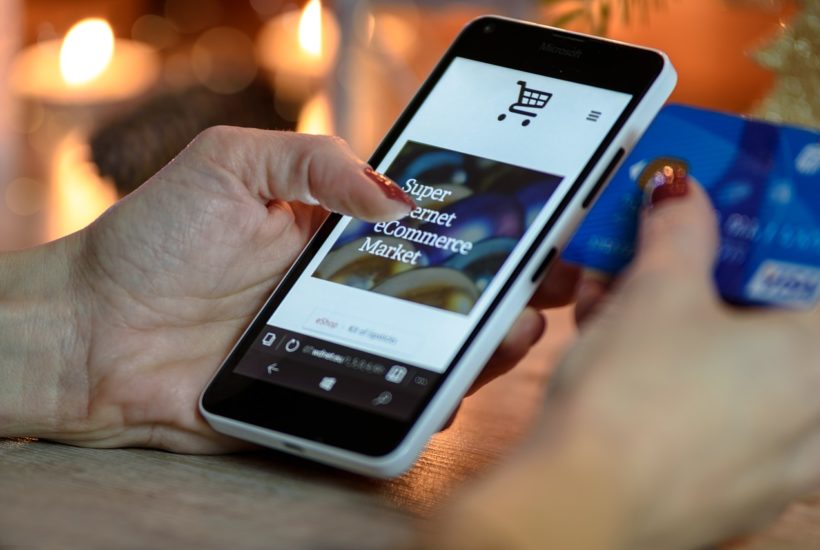Business
Five Things Small Entrepreneurs Need to Know to Develop a Great Shopping App
The shopping app craze started as soon as e-commerce entrepreneurs realized that apps could boost their online sales fast. You can give your customers a functional app using a ready-made solution. There are plenty available to choose from. For example, Appsmakerstore can build a native application for iOS or Facebook and comes with over 100 ready-made templates.

Not all businesses need a mobile app, but for small online stores, not having the option could mean losing out on potential customers. According to Compuware, around 85 percent of consumers would prefer to use an app instead of the website’s mobile version.
For retailers, apps provide increased customer engagement while offering marketing insights and other competitive advantages. Thanks to the ready-made solutions available now, it’s never been easier to create your own mobile application. What should e-commerce entrepreneurs know to develop a great app?
Consider your resources and budget
For small e-commerce businesses like new clothing stores or home bakeries, the app development cycle can be expensive, time-consuming, and exhausting. What’s more, most small stores don’t need an app built from scratch. Hiring an agency, paying $10K for a simple app, and waiting months for the final version isn’t worth the investment if you’re not a retail giant or a chain store.
Use an app builder or other solutions
You can give your customers a functional app using a ready-made solution. There are plenty available to choose from. For example, Appsmakerstore can build a native application for iOS or Facebook and comes with over 100 ready-made templates. Swiftic allows retailers to boost their sales with a mobile catalog, loyalty programs, and other features. GoodBarber helps build apps with offline payment systems, local delivery by ZIP code, and in-store pickup. There are tons of easy solutions on the market, so you won’t have trouble finding the right one for your business or budget.
Align your expectations with the timeframe
Apple banned apps based on templates from the App Store in December 2017. However, due to its impact on small businesses with limited budgets, they eventually rolled back the ban. Now, in order to submit their apps, app owners have to create their own publisher accounts and launch the app themselves. While preparing apps for submission, entrepreneurs must provide a description, screenshots, and other information. This can take up to several weeks, and the app might never be approved.
Be aware of additional costs
To register an account with the leading app stores, entrepreneurs pay a certain amount in fees. Publishing an app in Apple’s App Store costs $99 per year, and Google Play charges a one-time $25 payment. Luckily, there are ways to avoid both the lengthy app submission process and the fees. For example, with the new white-label solution, KUKApp, e-commerce entrepreneurs don’t have to register an account with the App Store or Google Play. KUKApp lets small businesses “cook up” their app in under 3 hours, integrate it with their online store’s CMS, and get approved by the app stores within 24 hours. Using this solution, entrepreneurs may not have full control of the creative process, but they do save time and money.
Do you have some IT skills?
If you’ve already successfully started your own online store, chances are you have some basic coding experience under your belt. But if your tech skills stop at HTML, then working with most online builders, integrating a new app with your online store, and submitting it for publishing could put those skills to the test. Choosing a solution that doesn’t require you to go through this process might be your best bet.
The shopping app craze started as soon as e-commerce entrepreneurs realized that apps could boost their online sales fast. Consumers make twice as many purchases by apps as they do via mobile web stores, reports New York-based mobile partnership platform Button. With mobile shopping on the rise, app usage continues to grow, and, most likely, will be a major driver of sales for small businesses with tech-savvy Millennials and Zoomers entering the shopping market.
—
(Featured image by PhotoMIX-Company via Pixabay)
DISCLAIMER: This article was written by a third party contributor and does not reflect the opinion of Born2Invest, its management, staff or its associates. Please review our disclaimer for more information.
This article may include forward-looking statements. These forward-looking statements generally are identified by the words “believe,” “project,” “estimate,” “become,” “plan,” “will,” and similar expressions. These forward-looking statements involve known and unknown risks as well as uncertainties, including those discussed in the following cautionary statements and elsewhere in this article and on this site. Although the Company may believe that its expectations are based on reasonable assumptions, the actual results that the Company may achieve may differ materially from any forward-looking statements, which reflect the opinions of the management of the Company only as of the date hereof. Additionally, please make sure to read these important disclosures.

-

 Crowdfunding1 week ago
Crowdfunding1 week agoThe Youth Program at Enzian Shooting Club Is Expanding Thanks to Crowdfunding
-

 Crypto5 days ago
Crypto5 days agoTariff Turmoil Sends Bitcoin and Ethereum Lower as Crypto Markets Face Mounting Pressure
-

 Markets2 weeks ago
Markets2 weeks agoMarkets, Jobs, and Precious Metals Show Volatility Amid Uncertainty
-

 Crypto2 days ago
Crypto2 days agoEthereum Outlook: Key $2,190 Resistance, Whale Accumulation, and Buterin’s Push for True DeFi

















